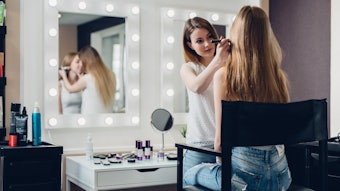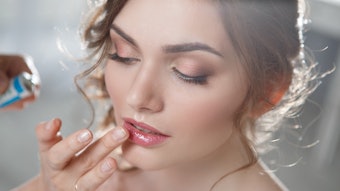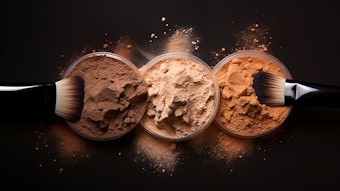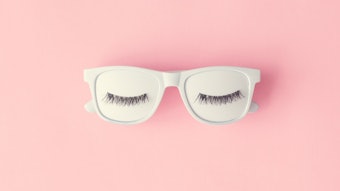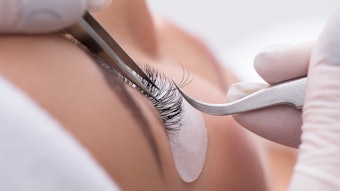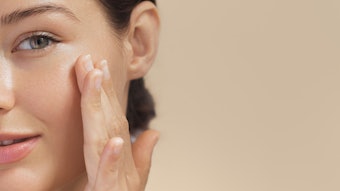Cosmetics, such as mascara, eyeliner and concealer, are among the leading foreign objects to enter both girl’s and women’s eyes. According to Dr. Harvey Moscot of Moscot Eyewear and Eyecare since 1915, “The most serious problem related to the application of eye makeup is injury to the cornea (the clear surface in the front of the eye) from either scratching the eye with a fingernail or eyeliner device. Additionally, allergic reactions from preservatives that stop bacterial growth on makeup can also cause tearing, itching, swelling and redness to the eyes. This happens more commonly then you’d imagine.
Following are some helpful tips to share with your clients from Moscot to help prevent any potential injuries, infections or allergic reactions when applying makeup around the eyes.
- Careful, careful, careful. Eye makeup removers are designed to be used near and around the eye. Makeup removers can cause dryness, itching and swelling if they get into the eyes, so apply with ease to avoid allowing any to entering the eye.
- Keep your eyeliner pencils sharpened.This prevents the wood casing from scratching the eye. An old pencil tends to get stiff, requiring more pressure. If this happens, replace the pencil with a new one.
- Give your makeup a break. If you have an eye infection, such as pink eye or conjunctivitis, avoid wearing makeup until the condition abates. And importantly, make sure to throw away existing makeup and start anew since older products may still contain the bacteria.
- Out with old, in with the new. It is important to replace old cosmetics every six months to avoid excess contamination and bacteria growth. Old cosmetics are a major cause of eye infections.
- Saliva does not make for cleaner make up. If your makeup needs a little spiffing up, do not use your saliva to do so! Make sure to clean your makeup with water or makeup remover only since saliva contains bacteria and might cause infection.
- Never share eye makeup. Because everyone’s skin bacteria is different, sharing cosmetics is a surefire way to cause cross-contamination that leads to eye infections.
- Never mix old with new. Old applicators cannot be used with new cosmetics. You run the risk of transferring bacteria into the newly purchased product by using older applicators.
- Makeup counter no-no. Never use sample products at cosmetic counters without making sure they are using a fresh sample on you.
- Don’t makeup and drive. Never under any circumstance should you ever apply makeup in a moving vehicle. Any quick maneuver, stop or sudden bump could mean an accidental poke.

